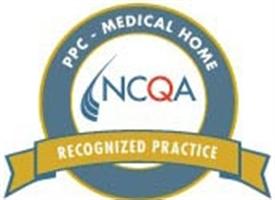URMC Primary Care Network Receives Top Medical Home Certification from NCQA
URMC Primary Care Network Receives Top Medical Home Certification from NCQA
All 22 offices in the University of Rochester Medical Center’s primary care network have been nationally certified at the highest level to offer a new model of care that promotes partnership between patients and a personal team of health care providers.

The network is certified as Level 3 NCQA Patient-Centered Medical Home (PCMH) by the National Committee for Quality Assurance, an independent national organization that reviews and accredits managed care plans and measures quality.
PCMH is a model of care that strengthens the physician-patient bond by replacing episodic visits with coordinated care and long-term, mutual relationships. This strong team approach to care, coordinated by a patient’s own physician, nurse practitioners and registered nurses, emphasizes prevention, early intervention and close management of chronic diseases. Each patient has an ongoing relationship with a personal physician who leads their team at a single location, through which there is a collective accountability for care, providing for the patient’s health care needs and arranging for additional services with other clinicians.
The accomplishment illustrates the emphasis URMC has put on reshaping and improving how health care is delivered to patients in the Rochester area, said Wallace E. Johnson, M.D., the Ralph W. Prince Professor of Medicine, associate chair for Primary Care, and director of the URMC Center for Primary Care.
“The medical home model brings individualized care to the patient, with careful monitoring and improved communication between patient and provider,” Johnson said. “This effective team approach to personalized medicine allows physicians more quality time working with patients, allowing them to make even more of a difference in their outcomes. This is why we dedicate our lives to medicine – to improve someone’s long-term quality of life.”
In 2011, URMC began adding staff to its primary care network to speed implementation of its PCMH model and transform traditional practices to medical homes, provide more focused patient-centered care for patients and encourage cost savings.
The Medical Center added 23 RNs who serve as care managers and 19 data coordinators to support primary care physicians in its 22 practices. URMC was the first local health system to make such a substantial financial and operational commitment to PCMH using its own funds.
The hallmarks of a PCMH practice include the ability to make appointments the same day or the day after they are requested; electronic monitoring to ensure that sound, preventive care is provided; and access to a care coordinator to support patients and manage care for those with chronic illnesses. Data coordinators keep physicians, care managers and patients apprised of gaps in preventive health measures, testing or follow-up visits.
Each practice has computer software that, when partnered with the new system of electronic medical records, provides broad surveillance of patients and the ability to intervene with preventive measures. Physicians can target specific subsets of patients for defined clinical activities and needs, track the care of chronic disease patients and identify patients who may have fallen behind in preventive care.
“This team approach, with its strong, consistent focus on the whole patient, allows physicians more time to engage directly and more meaningfully with patients,” said Betty Rabinowitz, M.D., medical director for the URMC Center for Primary Care. “The emphasis is on proactive, patient-centered care.”
###
* The above story is adapted from materials provided by University of Rochester Medical Center
![]() ______________________________________________________________________
______________________________________________________________________



















